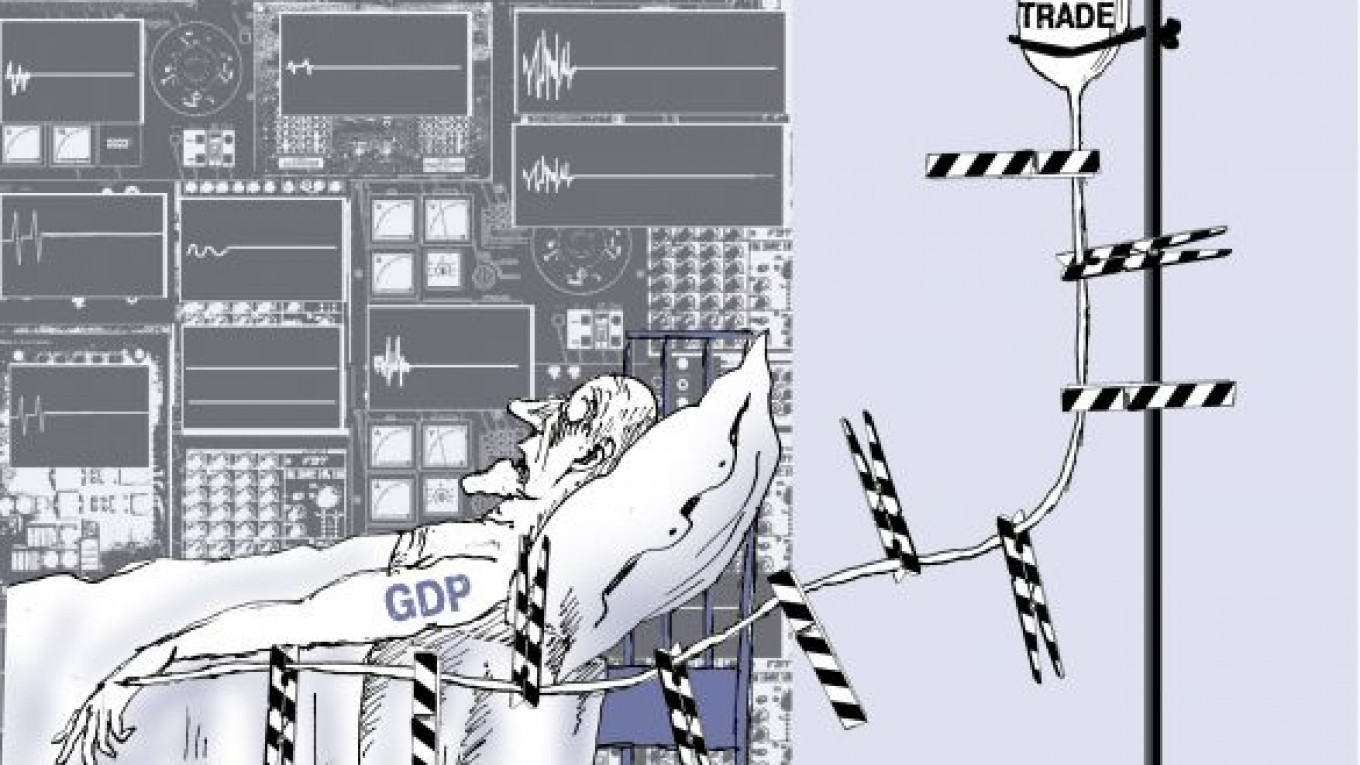Contrary to what skeptics often assert, the case for free trade is robust. It extends not just to overall prosperity (or “aggregate gross national product”), but also to distributional outcomes, which makes the free-trade argument morally compelling as well.
The link between trade openness and economic prosperity is strong and suggestive. For example, Arvind Panagariya of Columbia University divided developing countries into two groups: “miracle countries” that had annual per capita gross domestic product growth rates of 3 percent or higher, and “debacle countries” that had negative or zero-growth rates. Panagariya found commensurate corresponding growth rates of trade for both groups in the period from 1961 to 1999.
Of course, it could be argued that GDP growth causes trade growth, rather than vice versa — that is, until one examines the countries in depth. Nor can one argue that trade growth has little to do with trade policy. While lower transport costs have increased trade volumes, so has steady reduction of trade barriers.
More compelling is the dramatic upturn in GDP growth rates in India and China after they turned strongly toward dismantling trade barriers in the late 1980s and early 1990s. In both countries, the decision to reverse protectionist policies was not the only reform undertaken, but it was an important component.
In the developed countries, too, trade liberalization, which started earlier in the postwar period, was accompanied by other forms of economic opening — for example, a return to currency convertibility — resulting in rapid GDP growth. Economic expansion was interrupted in the 1970s and 1980s, but the cause was the macroeconomic crises triggered by the success of the OPEC cartel and the ensuing deflationary policies pursued by then-Federal Reserve Chairman Paul Volcker.
Moreover, the negative argument that historical experience supports the case for protectionism is flawed. The economic historian Douglas Irwin has challenged the argument that 19th-century protectionist policy aided the growth of infant industries in the United States. He has also shown that many of the 19th century’s successful high-tariff countries, such as Canada and Argentina, used tariffs as a revenue source, not as a means of sheltering domestic manufacturers.
Nor should free traders worry that trade openness resulted in no additional growth for some developing countries, as critics contend. Trade is only a facilitating device. For instance, if your infrastructure is bad, or you have domestic policies that prevent investors from responding to market opportunities — such as South Asia’s stifling licensing restrictions — you will see no results. To gain from trade openness, you have to ensure that complementary policies are in place.
But then critics shift ground and argue that trade-driven growth benefits only the elites and not the poor; it is not “inclusive.” In India, however, the shift to accelerated growth after reforms that included trade liberalization has pulled nearly 200 million people out of poverty. In China, which grew faster, it is estimated that more than 300 million people have moved above the poverty line since the start of reforms.
In fact, developed countries benefit from trade’s effect on poverty reduction as well. Contrary to much popular opinion, trade with poor countries does not pauperize rich countries. The opposite is true. It is unskilled, labor-saving technical change that is putting pressure on the wages of workers, whereas imports of cheaper, labor-intensive goods from developing countries help the poor who consume these goods.
If freer trade reduces poverty, it is presumptuous for the critics to claim greater virtue. In truth, the free traders control the moral high ground. With at least 1 billion people still living in poverty, what greater moral imperative do we have than to reduce that number? Talk about “social justice” is intoxicating, but actually doing something about it is difficult. Here the free traders have a distinct edge.
As the historian Frank Trentmann has demonstrated, the case for free trade was made in 19th-century Britain in moral terms. It was held to promote not just economic prosperity, but also peace. It is also worth recalling that U.S. Secretary of State Cordell Hull was awarded the Nobel Peace Prize in 1945 for policies that included his tireless efforts on behalf of multilateral free trade. It is time for the Norwegian Nobel committee to step up again.
Jagdish Bhagwati is university professor of economics and law at Columbia University and senior fellow in international economics at the Council on Foreign Relations. He is currently co-chair of the United Nations Conference on Trade and Development’s panel of eminent persons on “Development-centered Globalization.” © Project Syndicate
A Message from The Moscow Times:
Dear readers,
We are facing unprecedented challenges. Russia's Prosecutor General's Office has designated The Moscow Times as an "undesirable" organization, criminalizing our work and putting our staff at risk of prosecution. This follows our earlier unjust labeling as a "foreign agent."
These actions are direct attempts to silence independent journalism in Russia. The authorities claim our work "discredits the decisions of the Russian leadership." We see things differently: we strive to provide accurate, unbiased reporting on Russia.
We, the journalists of The Moscow Times, refuse to be silenced. But to continue our work, we need your help.
Your support, no matter how small, makes a world of difference. If you can, please support us monthly starting from just $2. It's quick to set up, and every contribution makes a significant impact.
By supporting The Moscow Times, you're defending open, independent journalism in the face of repression. Thank you for standing with us.
Remind me later.






